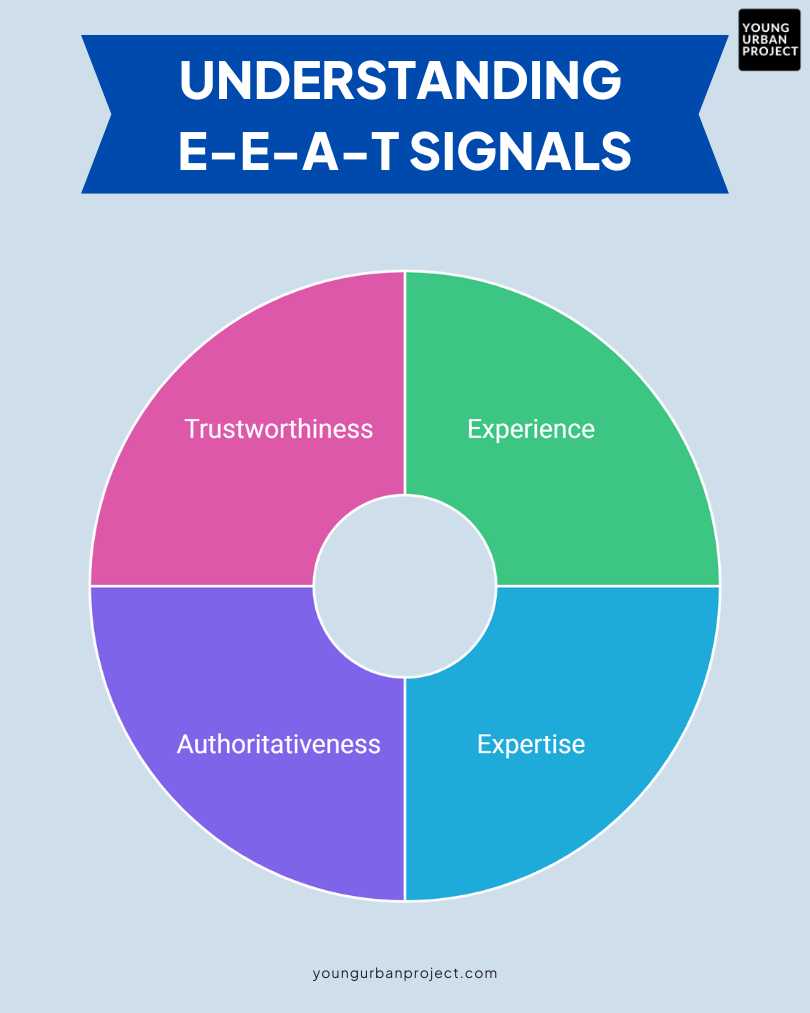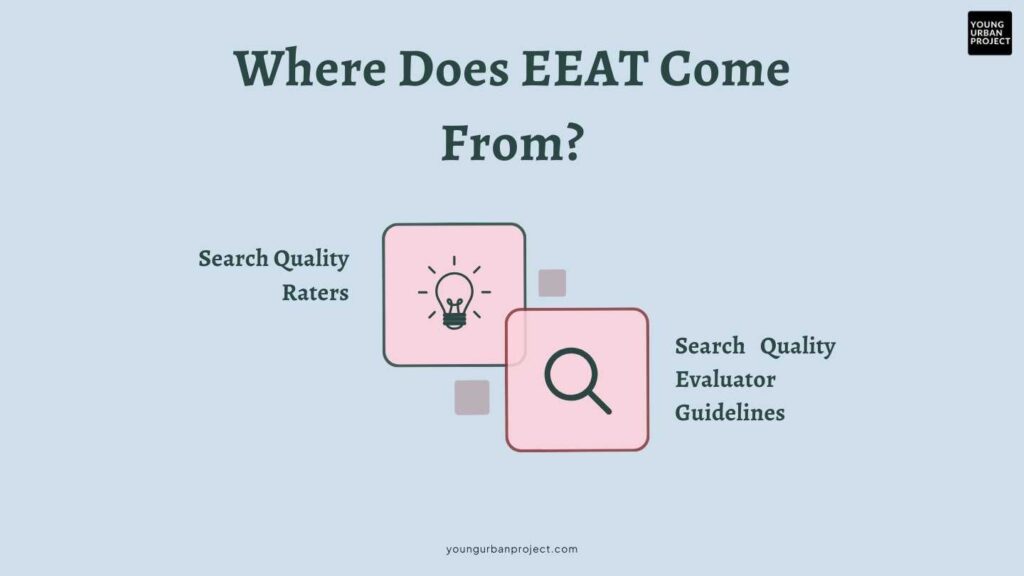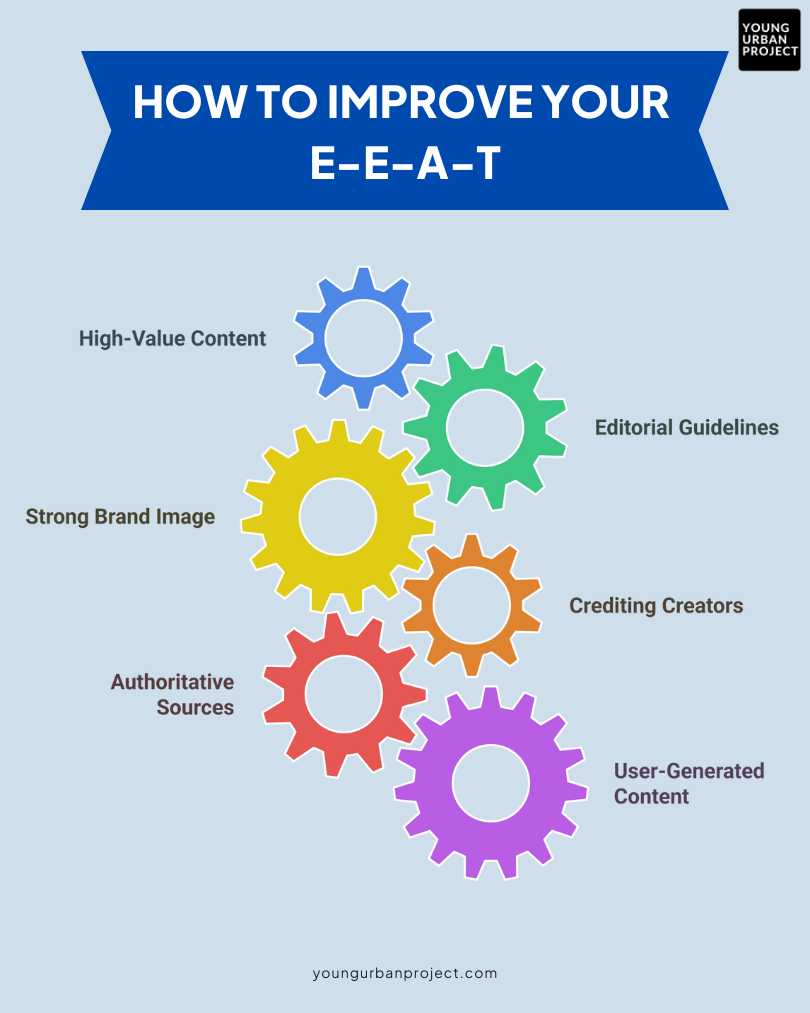Have you ever wondered why some websites rank higher on Google than others, even when the content seems similar? The secret lies in a concept called E-E-A-T, which stands for Experience, Expertise, Authoritativeness, and Trustworthiness.
Table of Contents
Google uses these factors to assess the quality of content and determine how well it should rank in search results. With a growing focus on high-quality, helpful content, understanding and optimizing E-E-A-T has become crucial for anyone looking to improve their SEO strategy.
Whether you’re a content creator, marketer, or website owner, incorporating these principles can drastically improve your chances of ranking higher and gaining the trust of your audience.
Let’s explore what Google E-E-A-T really means, how it influences your SEO, and share some actionable tips to boost your website’s trustworthiness and content quality. If you’re looking to make your content shine and climb the search engine rankings, you’re in the right place! Let’s get started!
What is Google E-E-A-T?
Google E-E-A-T stands for Experience, Expertise, Authoritativeness, and Trustworthiness, four key factors that Google uses to evaluate the quality of content and its relevance to users. This concept is crucial in determining how well a website ranks in Google search results. Experience refers to firsthand knowledge or involvement with a topic, while expertise highlights the creator’s qualifications. Authoritativeness reflects the credibility of the website or content creator, and trustworthiness focuses on the reliability and safety of the content. Google uses these factors to ensure users receive the most accurate and reliable information in their search results.
Also read: The Difference Between On-Page and Off-Page SEO
E-E-A-T Signals and Their Role

1. Experience
Experience refers to the firsthand knowledge or direct involvement a content creator has with a topic. Google values content that is written by someone who has real-life experience, as it provides more authentic and reliable insights. This can be demonstrated through personal stories, case studies, or any content showing direct interaction with the subject matter.
Example: A travel blogger writing about their personal hiking experience, sharing tips, challenges, and photos from their journey.
2. Expertise
Expertise focuses on the depth of knowledge and qualifications a content creator holds. Google prioritizes content from individuals or organizations with credentials, proven expertise, or educational background in the relevant field. This signals to Google that the content is not only knowledgeable but also authoritative in its domain.
Example: A certified nutritionist writing an article on healthy meal planning, backed by scientific studies and professional certifications.
3. Authoritativeness
Authoritativeness indicates how well-regarded a website or content creator is in their field. Google looks at the reputation of the source, including external signals like backlinks, citations, and industry recognition. A website with high authority is trusted by both users and other reputable sources within the industry.
Example: A finance website like Investopedia ranking high for financial advice because it’s cited by reputable sources and trusted by industry professionals.
4. Trustworthiness
Trustworthiness is about the reliability and credibility of both the content and the website hosting it. Google evaluates whether the site provides accurate, safe, and transparent information, especially for sensitive topics like health or finance. Trustworthy content ensures users can rely on it without concerns about misinformation or harmful advice.
Example: A medical website like Mayo Clinic including references to peer-reviewed studies and clear author bios to establish credibility.
Also read: Types of SEO (Search Engine Optimization)
Where Does EEAT Come From?
E-E-A-T comes from Google’s Search Quality Evaluator Guidelines, a set of instructions used by Search Quality Raters to assess the quality of search results. These guidelines help Google evaluate content based on factors like Experience, Expertise, Authoritativeness, and Trustworthiness (E-E-A-T) to prioritize high-quality, reliable information for users.

1. Search Quality Raters
Search Quality Raters are human evaluators employed by Google to assess the quality of search results. Their role is to review and rate web pages based on criteria outlined in Google’s guidelines. While their feedback does not directly impact rankings, it provides valuable data that helps Google fine-tune its algorithm to deliver more relevant and trustworthy results. Their ratings help Google understand how well a page aligns with user intent.
2. Search Quality Evaluator Guidelines
The Search Quality Evaluator Guidelines are a set of detailed instructions provided by Google to its human raters. These guidelines help evaluators assess the quality of web pages by focusing on factors like Experience, Expertise, Authoritativeness, and Trustworthiness (E-E-A-T). They outline how to evaluate different types of content, such as YMYL (Your Money or Your Life) pages, and ensure that Google’s algorithm can better prioritize high-quality, reliable information for users.
Also read: How to do an SEO Audit
Why Is E-E-A-T Important for SEO?
E-E-A-T (Experience, Expertise, Authoritativeness, Trustworthiness) plays a vital role in SEO by influencing how Google ranks content. Websites with strong E-E-A-T signals are considered more reliable and valuable, leading to higher rankings. Let’s explore why E-E-A-T is crucial for SEO success.
Why It’s Important for SEO
- Improves Search Ranking: Websites that demonstrate strong E-E-A-T signals are favored by Google’s algorithm, helping them rank higher in search results.
- Increases Credibility: High E-E-A-T content builds trust with both users and Google, encouraging higher user engagement and repeat visits.
- Aligns with User Intent: Content that’s accurate and trustworthy meets user needs, which Google rewards by ranking it higher.
- Boosts Traffic and Conversions: When trusted content ranks higher, it attracts more traffic and potential customers, ultimately increasing conversions.
- Helps with YMYL Pages: For sensitive topics like health or finance, Google gives extra weight to E-E-A-T signals, ensuring users receive safe and reliable information.
How to Improve Your E-E-A-T
Enhancing your E-E-A-T (Experience, Expertise, Authoritativeness, Trustworthiness) is vital for SEO and building trust with both Google and users. By creating high-quality content and following key strategies, you can significantly improve your website’s credibility. Here are effective ways to strengthen your E-E-A-T signals:

1. Produce High-Value, Helpful Content
Focus on crafting content that genuinely helps your audience by answering questions, providing solutions, and offering valuable insights. Content that is informative, well-researched, and up-to-date not only attracts users but also earns trust from Google. By consistently delivering quality, you position yourself as a reliable authority in your niche.
2. Maintain Rigorous Editorial Guidelines
Adhering to strict editorial standards ensures your content is clear, accurate, and polished. Implement a structured content creation process with professional editing to eliminate errors and uphold quality. High-quality writing boosts your website’s credibility and helps establish a reputation for excellence, ultimately increasing your E-E-A-T signals.
3. Build a Strong and Trustworthy Brand Image
Your brand’s reputation plays a crucial role in establishing authoritativeness. Publish consistently high-quality content, foster positive user interactions, and gain recognition within your industry. A well-established, reputable brand signals reliability to both Google and users, making it more likely to rank higher and be viewed as a trustworthy source.
4. Attribute Content Creators to Enhance Credibility
Crediting the authors and creators behind your content strengthens trust and transparency. Including author bios that highlight credentials and relevant experience enhances your content’s perceived expertise. Giving credit where it’s due boosts user confidence in the information and signals to Google that your content is created by reliable, knowledgeable sources.
5. Rely on Authoritative and Credible Sources
Support your content with credible sources and external references to increase trustworthiness. Linking to authoritative studies, expert opinions, and respected research not only improves content quality but also signals that your information is well-founded. Google rewards content that’s backed by solid, reputable sources, reinforcing its reliability and expertise.
6. Incorporate and Showcase User-Generated Content
User-generated content (UGC), such as reviews, comments, and social proof, amplifies your website’s trustworthiness. Positive feedback from real users demonstrates credibility and builds confidence in your brand. Encouraging UGC also increases engagement and social proof, showing Google and your audience that your content is valued and authentic.
FAQs
1. Do E-E-A-T factors directly impact search rankings?
While E-E-A-T itself isn’t a direct ranking factor, it influences how Google evaluates content. Strong E-E-A-T signals lead to better search rankings because Google prioritizes content that is trustworthy, authoritative, and helpful to users. In essence, content that demonstrates high E-E-A-T is more likely to rank higher due to its alignment with user intent.
2. Does E-E-A-T matter more for certain types of websites?
Yes, E-E-A-T is particularly important for websites dealing with sensitive topics like health, finance, or legal advice (known as YMYL – Your Money or Your Life). Google places greater emphasis on Experience and Expertise in these areas to ensure users receive reliable and accurate information. For less sensitive topics, while still relevant, the impact may not be as significant.
3. Are there any SEO studies or research on E-E-A-T guidelines?
Yes, several SEO experts and agencies have analyzed Google’s Search Quality Evaluator Guidelines and their relationship to ranking factors. These studies show that content demonstrating strong E-E-A-T characteristics tends to perform better in search results. Research focuses on how Google uses human raters to assess these factors and how they influence algorithm updates and ranking shifts.
4. How does user intent relate to E-E-A-T?
User intent is a critical factor in how Google evaluates content. E-E-A-T helps ensure that content matches what users are looking for, with trustworthy, expert-backed information that answers their questions. Google prioritizes content that fulfills user needs effectively, rewarding websites that provide valuable, authoritative, and well-researched content aligned with intent.
5. Can I improve my E-E-A-T without changing content?
Yes, you can improve your E-E-A-T without directly altering content. Focus on enhancing your website’s authority by obtaining credible backlinks, increasing positive user reviews, and gaining industry recognition. Additionally, showcasing expert contributors or strengthening your brand reputation can improve your overall trustworthiness and authority, which will positively impact E-E-A-T.

